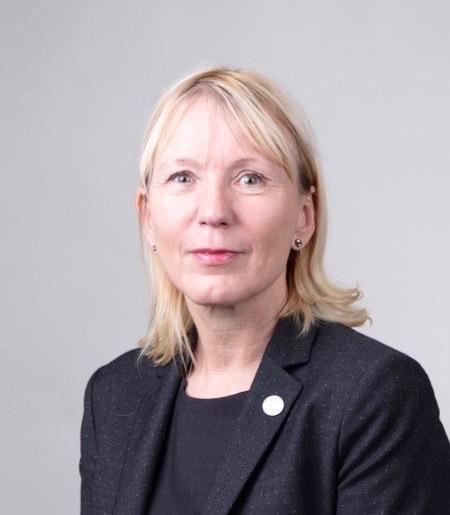Four researchers awarded ERC Consolidator Grants
Karl Magnus Laundal, Cristian Gebhardt, Kjetil Våge, and Arnald Puy have received funding to conduct groundbreaking research through the European Research Council (ERC).

Main content
Competing with over two thousand applicants, UiB researchers Laundal, Gebhardt, Våge and Puy are among the 321 researchers who have been awarded ERC Consolidator Grants from the European Research Council (ERC).
The grants were announced in a press release on January 31. Each researcher will receive up to two million euros, or just over 21 million Norwegian kroner, for their projects.
The researchers can now develop their research group and explore original ideas within their fields. They work in fields as diverse as space, ocean currents, ocean wind technology, and agriculture
Rector Margareth Hagen congratulates them: "It is fantastic that we have secured further ERC funding for pioneering and groundbreaking research. This is positive in terms of expanding our knowledge base and for advancing the careers of our researchers."
New models for space science
Karl Magnus Laundal of the Department of Physics and Technology and the Birkeland Centre for Space Science will use his ERC Consolidator Grant to study the coupling between the Earth’s atmosphere and space. This research will provide much needed information to understand space weather.
Our satellites and airplanes are vulnerable during periods with increased interplanetary and geomagnetic activity. Another problem may arise from the fact that space weather may cause perturbations on the ground, causing blackouts in the electric power grid.
In his new project, Karl Magnus Laundal will replace the two-dimensional space-atmosphere coupling models currently used with a three-dimensional numerical model yet to be developed. Such an «upgrade» will make for a much more realistic representation of the laws of Physics.
New simulation technology for offshore wind turbines
Cristian Guillermo Gebhardt will tackle key challenges in offshore wind energy with smart algorithms and raw computing power.
"A massive upscaling of offshore wind power is necessary, but the current methodology for analysis and design in the field has reached its limits. DATA-DRIVEN OFFSHORE will investigate a new simulation technology for offshore wind turbines that can help solve a bottleneck which currently prevents further development of offshore wind power", says Gebhardt.
Gebhardt is an Associate Professor in Offshore Wind Energy at the Geophysical Institute and Director at the Bergen Offshore Wind Centre.
Ocean currents and climate change
Kjetil Våge of the Geophysical Institute and the Bjerknes Centre for Climate Research will investigate the consequences of climate change along the ice outside East Greenland.
The aim of the project ROVER: Resilient northern overturning in a warming climate is to find out how resilient ocean currents are against climate change, and especially the reduction in sea ice in winter.
"This has the potential to fundamentally change our understanding of ocean circulation in Northern Atlantic Ocean and how it changes in a warmer climate. Maybe it will help us come closer to an understanding of the tipping points in the North Atlantic?", suggests Våge.
Interdisciplinary research for sustainable acriculture
Arnald Puy at the Centre for the Study of the Sciences and the Humanities will combine approaches from hydrology, statistics, philosophy and anthropology in the project DAWN: Illuminating Deep Uncertainties in the Estimation of Irrigation Water Withdrawals.
Uncertainty and sensitivity analysis is central in addressing a major global societal challenge: To understand and quantify the need for irrigation withdrawals in agriculture. Puy will combine scientific and traditional knowledge to get closer to the goal: To design model-based irrigation policies that deliver under irreducible ambiguities.
ERC success for UiB
In recent years, UiB researchers have applied for ERC funding in greater numbers, and more have been successful. UiB is now approaching 50 ERC-funded projects in total.
"There are many reasons why we are seeing increased success in the tough international competition for ERC funding," says UiB Rector Margareth Hagen. "Firstly, we can attribute this to dedicated work of the researchers and their ability to develop novel research ideas. Systematic strategic development over a long period of time by the researchers and support staff is also an important factor, as well as strong research communities and good academic mentorships."
Hagen also highlights the support from the Trond Mohn Foundation (TMS). Both Våge and Laundal have received Starting Grants from the foundation in recent years.
"The support from TMS has also been an important contribution to recruiting and retaining such good researchers at UiB," Hagen says.
Project Establishment Support from the Research Council of Norway has also been significant freeing up resources and support in the application process, Hagen concludes.

